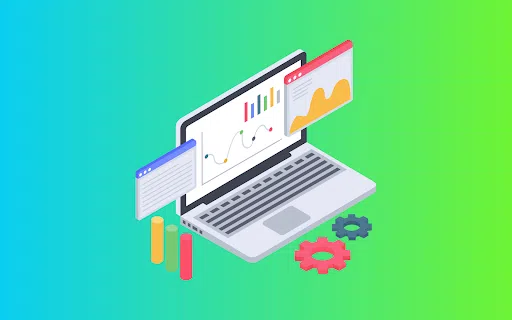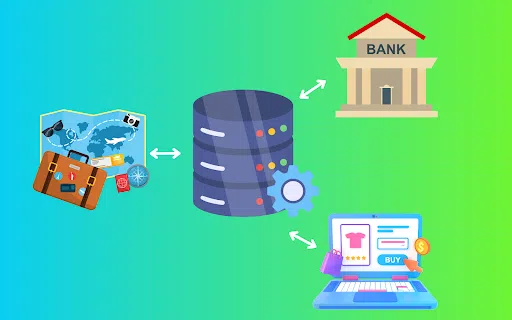What is SQL? Understanding its Definition, Features, and Why Companies Use It!

In light of recent global changes, the environment surrounding businesses has undergone a major transformation.
This shift in people’s behaviors and the emergence of various service data present both opportunities and challenges for businesses.
How can companies adapt and strategize in such rapidly changing conditions? The solution lies in leveraging SQL.
As a query language, SQL aids in extracting and analyzing data from databases.
By using SQL to study market trends and customer behaviors, companies can create effective strategies.
In this digital age, where there’s a deluge of data, the “Data Processing Language SQL” stands out.
Let’s dive deeper into the wonders of SQL, brought to you by Elancer, the premier IT freelancer platform.
What is SQL (Structured Query Language)?

Ever wondered how to determine which products are most favored by female customers over 30?
By acquiring and analyzing the data of this demographic, of course! And the tool used for this analysis is none other than “SQL”.
SQL, or ‘Structured Query Language‘, is a data processing language that helps users extract and manipulate information from databases.
In essence, it’s a valuable tool for searching and organizing stored information.
Businesses store customer details in databases to enhance their services and grow their customer base.
This database, filled with insights like a client’s name, age, gender, and address, is invaluable for tailoring products or services and devising marketing strategies.
Let’s discuss the myriad ways companies utilize data via SQL.
Why Use SQL?

In the age of big data, managing and understanding extensive sales figures to decipher trends and draft marketing strategies is paramount.
The adoption of SQL by businesses is on the rise as it allows users to extract specific information from databases, analyze data flows, and review data based on unique conditions.
Before SQL, data analysts often relied on tools like Excel or even manual methods, which were not only time-intensive but also posed challenges to data accuracy and consistency.
With SQL, businesses can now seamlessly and efficiently extract and assess data, solidifying SQL’s position as a must-have tool for handling vast data.
For instance, using SQL, businesses can quickly answer questions like “What’s the most purchased product over the past year?” or “Which product is the top choice in a specific region?”.
This capability ensures businesses can make informed, rapid decisions, enhancing productivity and gaining a competitive edge.
SQL Use Cases in Different Industries

With the importance of harnessing data at an all-time high, let’s explore how various sectors are tapping into the power of SQL:
Financial & Securities Firms
For financial entities managing large amounts of transactions daily, data is a treasure trove of insights.
With rising competition in customer acquisition in the financial sector, many companies utilize SQL to delve into their clients’ financial habits, offering them personalized financial products.
They also analyze transaction data to spot irregularities and avert fraudulent activities.
E-commerce Businesses
Major e-commerce giants are increasingly turning to SQL. As the e-commerce sector experiences robust growth, using data effectively becomes crucial in the cut-throat race to retain and attract customers.
Through SQL, these businesses dissect customer purchase data, offering tailor-made product suggestions, and crafting strategies to ensure a loyal customer base.
Travel and Tourism Industry
Do you know what issue has been drawing people’s attention since the prices have more than doubled after COVID-19? It’s the ‘airfare prices’.
With the lifting of travel bans due to COVID-19, the number of people seeking overseas destinations is increasing.
Companies in the travel and tourism industry are utilizing SQL to analyze users’ search histories and reservation information.
They provide customers with personalized information on airfares, destinations, hotels, and accommodation facilities that cater to individual preferences, thereby attracting customers.
Implementing SQL

To harness the power of SQL, it’s essential first to install a Database Management System (DBMS) and then select the SQL software that’s compatible with that specific DBMS.
Notable DBMS options include Oracle, MySQL, and MS SQL (Microsoft SQL Server). Each of these platforms provides a range of features, from database management, data manipulation, to security.
As such, making an informed choice based on your goals is crucial.
Key Features of Three Major Management Systems
[Oracle]
– Tailored for large-scale business database requirements.
– Predominantly used DBMS in UNIX/Linux environments.
– Recognized for its outstanding stability and scalability.
[MySQL]
– An open-source relational database management system.
– Known for its rapid speed and high-level performance.
– Lightweight and straightforward, making it a go-to for web applications and small to medium-sized businesses.
[MS SQL (Microsoft SQL Server)]
– A relational database management system from the house of Microsoft.
– Designed optimally for the Windows operating system.
– Distinguished by user-friendly management tools and exceptional compatibility, making it a favorite among businesses.
Have You Mastered the ‘Data Processing Language SQL’?

By adeptly using SQL, businesses can efficiently extract and analyze data, laying down the foundation for strategies that provide a competitive advantage.
In today’s data-driven world, SQL is a vital tool for smart and effective operations.
Seeking SQL-Savvy Data Experts?
We’ve got you covered with our leading IT freelancer platform!
Extracting and analyzing data from databases requires not just SQL query expertise but also an in-depth understanding of the server hosting the database. Enter the ‘Data Analysis Expert‘.
For optimal data utilization, it’s imperative to onboard professionals familiar with DBMSs like Oracle, MySQL, MS SQL, and web DB server languages such as Java, Python, PHP, and Node.js.
To streamline your hiring process, consider leveraging our top-tier IT freelancer matching platform.
Introducing Our Premier IT Freelancer Matching Platform!
Our platform stands out as a premier IT freelancer hub, boasting an extensive network of seasoned professionals.
With years of expertise under our belt, we provide a meticulous vetting process, ensuring you’re paired with the best fit for your project.
“For IT Expert Hiring,
All You Need is Elancer!”
After opting for our platform, which boasts the finest talent pool, we experienced active support from the dedicated managers.
The advanced services offered, rooted in years of experience, were truly commendable.
We’d especially recommend this for web agencies and System Integration (SI) companies, as it’s tailored to their specific needs.
Why the Fervor for Our Platform?
A Distinctive Service Powered by 23 Years of Experience
“From the systematic matching process to the amicable post-project follow-ups by the managers, I realized why everyone opts for this platform. I’ve never felt this level of service on other platforms!”
A Staggering 98% Project Re-assignment Rate: Our Results Speak for Themselves

Searching for Data Experts Proficient in SQL?
Sign up on our IT freelance platform and post your project requirements. Drawing upon our 23-year legacy and a wealth of data, we ensure an impeccable freelancer match for you!



